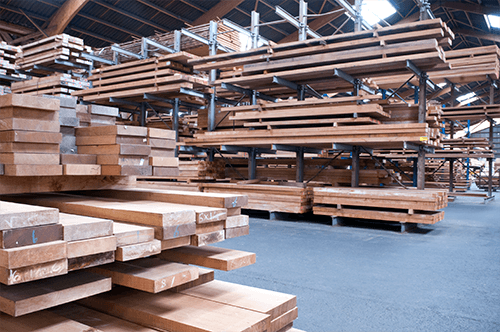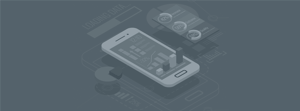
As a lumber dealer, navigating the world of wood supply, inventory management, customer relations, and financial planning is no mean feat. To tackle these challenges effectively, it’s crucial to explore Enterprise Resource Planning (ERP) systems that are tailored specifically to your needs. So, let’s dive into this quick guide and break down the essential ERP modules for lumber dealers.
Inventory Management
Effective management of different wood types, quantities, and their respective locations is a critical aspect of running a successful lumber business. To achieve this, you need a robust Inventory Management module. When tailored specifically to the needs of the lumber industry, it goes beyond mere tracking; it operates in real-time, offering a dynamic overview of stock levels. Importantly, it keeps you informed by providing timely notifications for low-stock situations. This empowers you to make well-informed purchasing decisions, ensuring that stock remains optimized to meet demand. By leveraging an Inventory Management module in this way, you can streamline your inventory processes, enhance operational efficiency, and ultimately contribute to the overall success of your business.
Purchasing and Procurement
The Purchase and Procurement module streamlines the buying process and keeps tabs on everything – from getting price quotes from suppliers to paying the bills. And it’s a lifesaver when you’re dealing with different types of wood from different suppliers. It will help you keep orders on track, deliveries smooth, and payments on time. You should consider this a vital tool in keeping your lumber operation in sync.
Sales and Order Management
The complex task of tracking customer orders, deliveries, and payments is seamlessly managed by the Sales and Order Management module. It integrates information about customer orders and inventory levels, ensuring timely deliveries and maintaining customer satisfaction. It’s comparable to having an impeccably organized assistant ensuring that every aspect of the sales process operates seamlessly.
Financial Management
This module encompasses the general ledger, accounts payable, accounts receivable, and tax management, ensuring accurate records, regulatory compliance, and insights into your business’s financial health. Choose a software package with an integrated finance module for seamless operations and a comprehensive financial overview within a unified system.
Customer Relationship Management (CRM)
Though not traditionally part of ERP, modern systems often include a CRM module. It helps maintain relationships with existing customers and acquire new ones by managing and analyzing customer interactions and data. It’s your secret weapon for building strong connections and growing your business.
Supply Chain Management
Given the expansive nature of the supply chain for lumber dealers, this module monitors and manages supply chain efficiency, ensuring smooth operations from procurement to delivery.
It’s your route to successful procurement, ensuring a seamless flow from beginning to end, helping you to stay ahead in the lumber industry.
Human Resources (HR)
The HR module assists you in managing employee data, attendance, payroll, and benefits, especially beneficial for those with a large workforce or looking to scale.
Reporting and Analytics
Making decisions based on real-time, accurate data is crucial. Look for systems with reporting and analytics tools—they’re like your business GPS. These modules help you see the big picture by providing insights into sales, inventory, and finances. Choosing a system with robust reporting and analytics is your secret weapon for smarter, more informed business decisions.
Conclusion
For lumber dealers, an ERP system is not just software; it’s an integral tool that simplifies complex operations and fosters business growth. Understanding the functionalities offered by these modules empowers you to make informed decisions on the right ERP system, ultimately leading to a more organized, efficient, and profitable operation.

